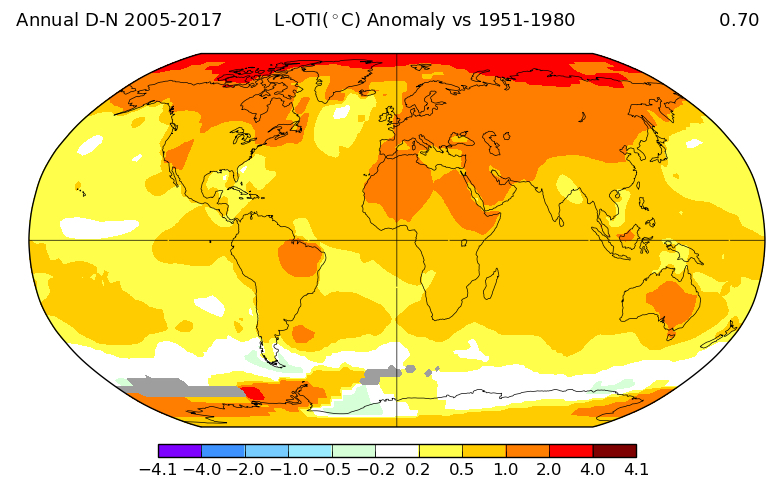A climate change modeler who bet two Russian solar physicists $10,000 that the world would get warmer appears to have easily won the 2005 wager with less than two weeks to go.
British scientist James Annan says he is “confident” that he has won his bet with the Russian pair Galina Mashnich and Vladimir Bashkirtsev.
Agreed 12 years ago, Annan bet the Russians that the six years between 2012 and 2017 would be warmer than the six years between 1998 and 2003.
Both sides of the bet agreed to use temperature data from the U.S. National Climatic Data Center, which has since been renamed the National Centers for Environmental Information.
Annan was sure that human emissions of carbon dioxide, mainly from fossil fuel burning, would see temperatures climb.
The two Russian scientists looked at forecasts of a drop in the amount of energy coming from the sun, and put their money on this keeping temperatures down.
Annan told the Guardian: “Yes, I am confident of winning the bet, even the threatened eruption of Agung [a volcano in Bali] couldn’t matter … even if it had happened earlier this year.
“With only a few weeks to go, there is no chance of sufficient cooling for me to lose.”
Annan last looked in detail at the progress of the bet in 2015, and even then he appeared to be well in front.
Between 1998 and 2003, temperatures across the six-year period were about 0.54°C above the 20th century average. In the five years between 2012 and 2016, that number is 0.78 °C.
With only two weeks of data to come, scientists have already predicted that 2017 will either be the second or third hottest year on record.
British climate science denier Piers Corbyn, brother of UK opposition leader Jeremy, told Nature in 2005 that he would have been willing to also take a similar $10,000 bet.
The Russians’ apparent wrong prediction is one of several featured on The Guardian in a run-down of failed predictions by climate science contrarians and deniers.
In 2016, climate science denial activist Marc Morano turned down two $10,000 bets offered by science communicator and TV presenter Bill Nye.
In 2015, a study published in a journal of Britain’s Royal Society found that any bets against global warming placed on any 15-year period from 1970 onwards would have lost.
An email to Galina Mashnich went unanswered. DeSmog was unable to find correct contact information for Vladimir Bashkirtsev.
Main image: A map using data from NASA‘s GISTEMP global temperature dataset shows how the world has warmed since 2005, when James Annan offered his bet.
Subscribe to our newsletter
Stay up to date with DeSmog news and alerts






